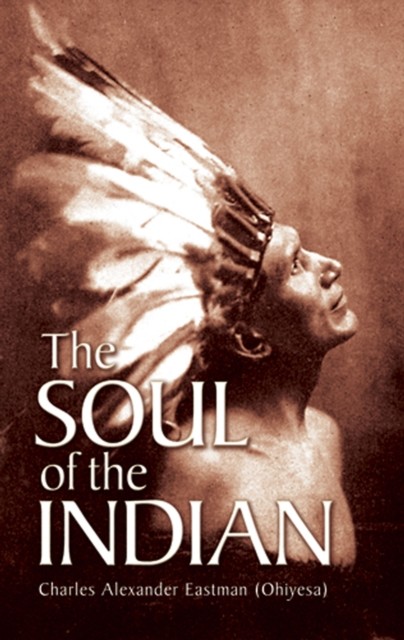We use cookies to improve the Bookmate website experience and our recommendations.
To learn more, please read our Cookie Policy.
To learn more, please read our Cookie Policy.
Accept All Cookies
Cookie Settings
Something went wrong. Try again.

Read in our apps:
iOS
·Android
Charles Alexander Eastman
Soul of the Indian
Notify me when the book’s added
Impression
Add to shelf
Already read
Report an error in the book
Share
Facebook
Twitter
Copy link
To read this book, upload an EPUB or FB2 file to Bookmate. How do I upload a book?
Raised among the Sioux until the age of 15, Charles Alexander Eastman (1858–1939) resolved to become a physician in order to be of the greatest service to his people. Upon completing his education at Boston University School of Medicine, he accepted an appointment to a South Dakota Indian reservation, where he was the only doctor available to the victims of the 1890 massacre at Wounded Knee. With the encouragement of his wife, he further distinguished himself both as a writer and as a uniquely qualified interpreter of Native American ways. His writings offer authentic, sometimes stirring views of a world that has forever changed.In The Soul of the Indian, Eastman brings to life the rich spirituality and morality of the Native Americans as they existed before contact with missionaries and other whites. This is a rare firsthand expression of native religion, without the filters imposed by translators or anthropologists. Rather than a scientific treatise, Eastman has written a book, "e;as true as I can make it to my childhood teaching and ancestral ideals, but from the human, not the ethnological standpoint."e; His discussions of the forms of ceremonial and symbolic worship, the unwritten scriptures, and the spirit world emphasize the universal quality and personal appeal of Native American religion.
more
This book is currently unavailable
71 printed pages
- Publication year
- 2012
Have you already read it? How did you like it?
👍👎
fb2epub
Drag & drop your files
(not more than 5 at once)

